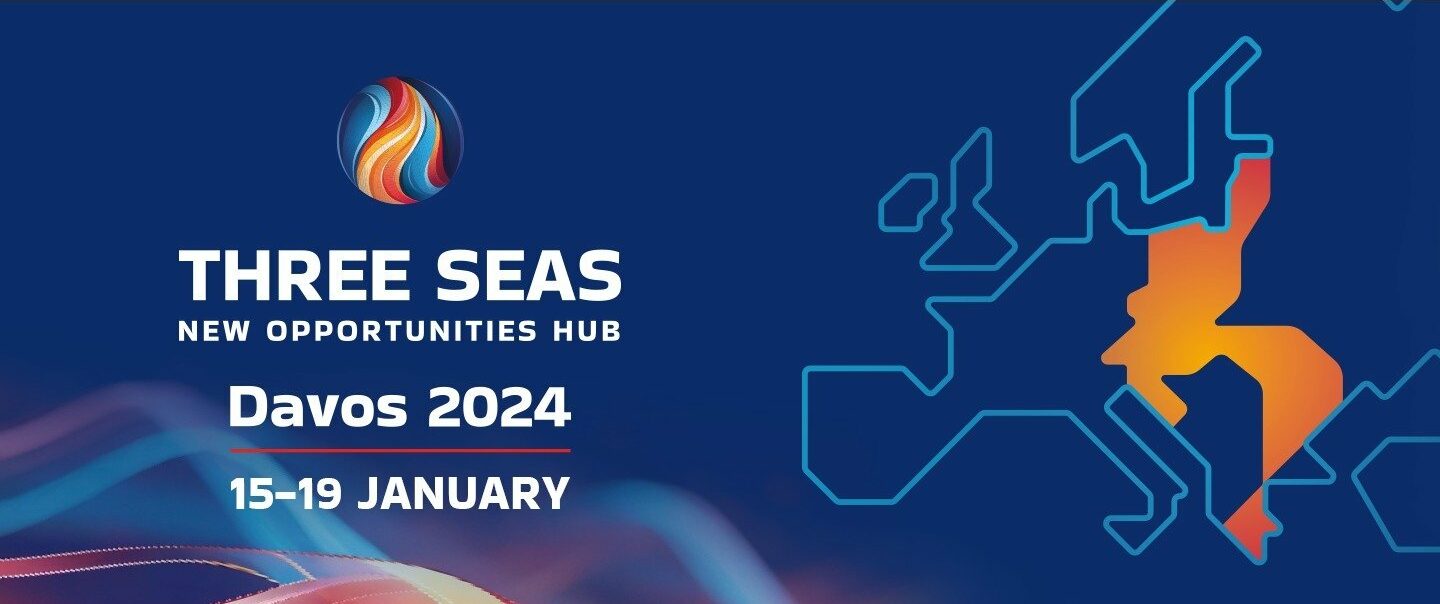The World Economic Forum in Davos is a key event with a rich history, during which politicians, decision-makers, NGOs, business representatives and experts discuss the biggest issues and challenges of today’s world. For several years now, the Three Seas region has also been organising its pavilion at this event, this year the same. This is due to the growing role of the Three Seas, not only in European but also in global geopolitics. It is a region with great economic potential, attracting the attention of investors from all over the world.
BGK, Polish Development Bank in cooperation with the American think-tank Atlantic Council, will ensure a high level of content for the activities taking place at the Three Seas Hub. The panel part of the event will be opened with a speech by Paweł Nierada, First Vice President of the Management Board at BGK, Polish Development Bank. Over the three days, panel discussions will address a wide variety of topics relevant to the future and development of the entire region.
The President of the Republic of Poland, Andrzej Duda, will address three panels on: the future of Ukraine in the context of integration with Europe; foreign investments in the Three Seas region (attended also by Paweł Nierada); and the security of NATO’s eastern flank.
A key event organised by the Three Seas Hub will be a high-level panel, with the participation of the presidents of Poland, Lithuania (Gitanas Nauseda), Latvia (Edgars Rinkevics) and the Prime Minister of Croatia (Andrej Plenković).
In the panel on the 3W (water, hydrogen, carbon) initiative participants will discuss how our region can become a hub for developing innovations based on these three, vital resources.
“The Three Seas Hub is an important and necessary venue that could not be missed at an event like the World Economic Forum in Davos. We want to promote our region and bring it even closer to visitors from around the world. We are creating a platform to discuss topics that are important for the present and future of the countries in this part of Europe. Our pavilion will be a place for the exchange of opinions and valuable discussions. The Three Seas is an area with huge investment needs but equally high economic potential – this is what we want to talk about above all at the events organised by the Three Seas Hub” – says Paweł Nierada, First Vice President of BGK, Polish Development Bank.
In addition, panel discussions will cover areas such as:
- The economic potential of the Three Seas region
- Artificial Intelligence (AI) and the digital revolution of the region
- Space and future technologies
- Economic growth in times of global uncertainty
- Green transformation
Dozens of representatives, from institutions and companies such as the World Bank, Harvard University, JBIC, Google, the European Parliament, the European Commission, EBRD, Lockheed Martin, the European Space Agency, Financial Times, Wall Street Journal, LSE, Export-Import Bank of the U.S., Goldman Sachs, will participate in the events organised by the Three Seas Hub.
Full agenda of the Three Seas Hub is available here.
There will be live streaming of panel discussions available on the BGK’s YouTube channel.
You might be interested in
In Central Europe, the acceptance of traditional EU policies is high. The situation is already different in Western European countries. These two trends will determine the future of the EU.
Read MoreThere are 35 million digital nomads globally. Three Seas Initiative countries are fighting hard to gain a significant share of this community.
Read MoreIn order to develop, Central Europe needs nothing more than innovation. Countries of the region are more and more aware of that.
Read More




